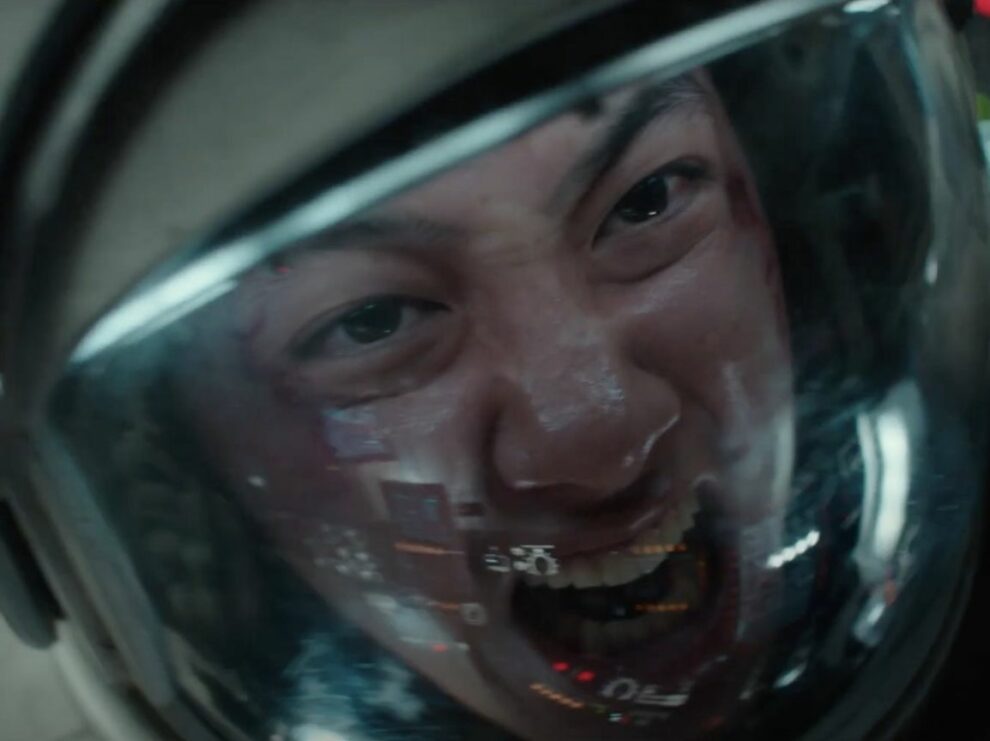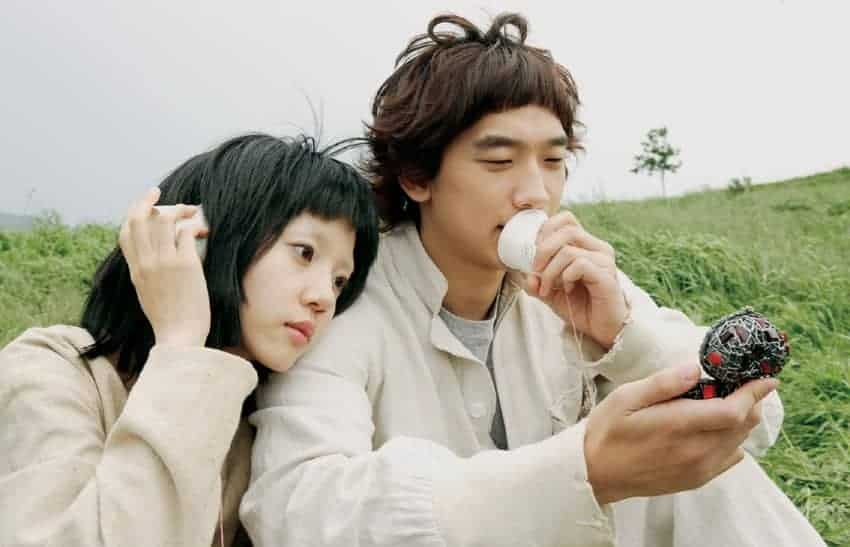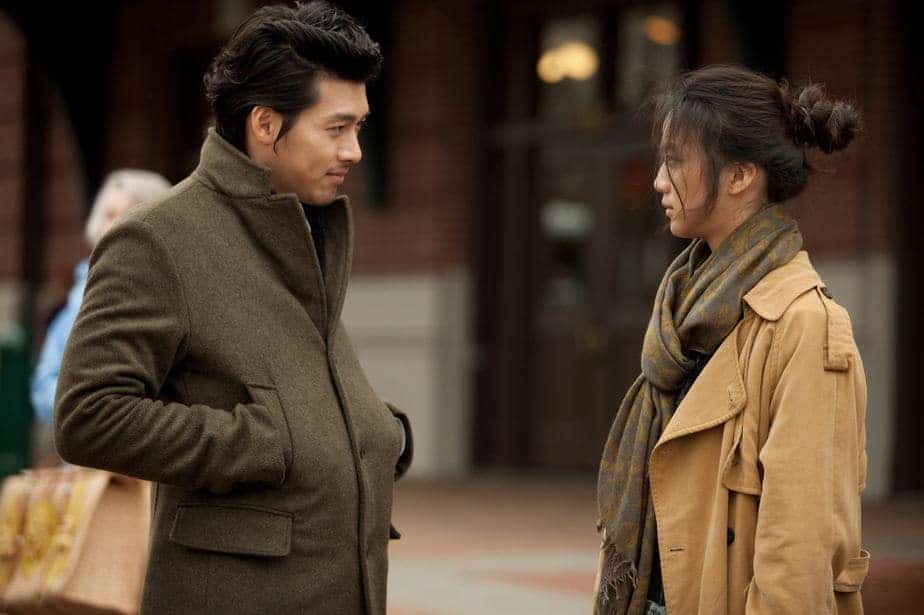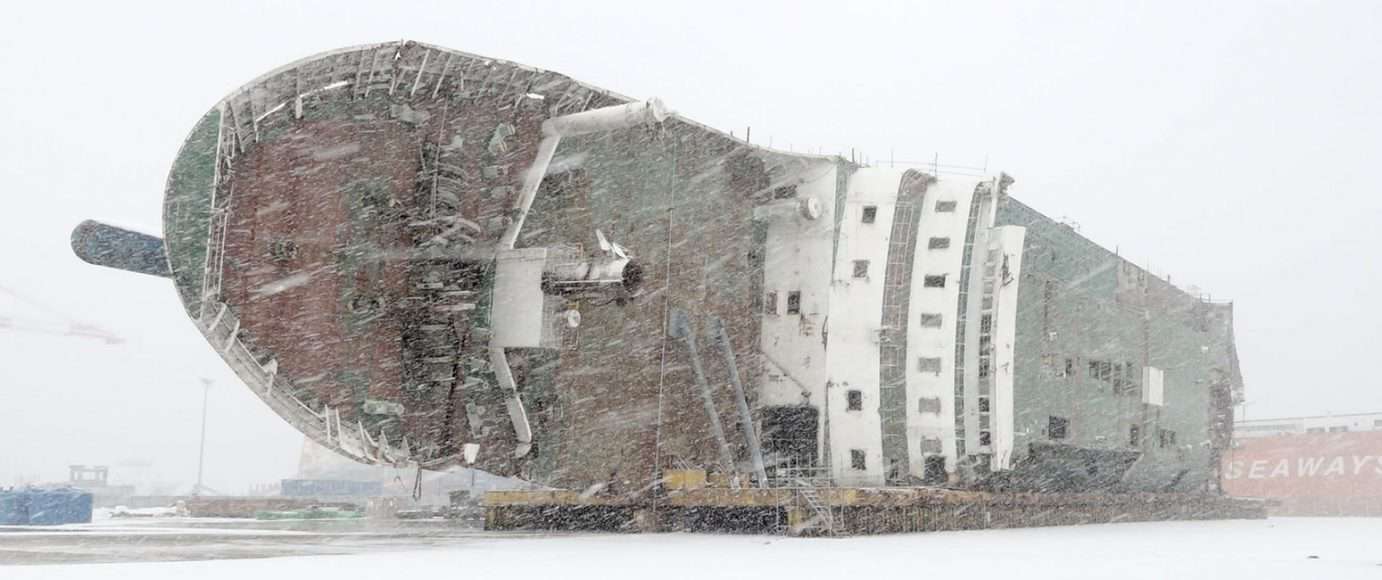South Korea isn't exactly a country that springs to mind when one thinks of the Space Race. The enormously expensive endeavour to shoot for the stars has always been the stage for huge global superpowers like the US and Russia to duke out their differences, and in turn, big-budget cinema has wasted no time in making a spectacle out of getting there. A recent Hollywood boom in the genre has seen prestige filmmakers like Alfonso Cuarón, Christopher Nolan and Ridley Scott turn in “Gravity”, “Interstellar” and “The Martian” respectively, and James Gray's divisive “Ad Astra” take the space-survival drama to its most eccentric end point. Yet it remains a predominantly American genre, and while South Korea's 2021 Netflix hit “Space Sweepers” arrived with a modest bang on the international front, East Asian cinema has yet to turn in a seminal space thriller. Enter Kim Yong-hwa's “The Moon” as South Korea's expensive, explosive and surprisingly self-aware bid to be recognized as a serious contender in cinema's very own Space Race.
K-Pop star Doh Kyung-soo (better known as D.O. to any fans of EXO) is Hwang Sun-woo, a former army sergeant (mirroring Doh's own recent stint in the military) who has been recruited by Korean space agency KARI as part of a three-man crew aiming to be the second country to send men to the Moon. Set in 2029, it's been 60 years since Neil Armstrong took one giant leap for mankind, and the discovery of vast quantities of energy resources beneath the lunar surface has reignited the Space Race, which South Korea is determined to be a part of. The mission goes awry after a solar flare leaves an inexperienced Hwang alone and afraid in a space craft gradually falling towards the Moon, shouldering the experts at Naro Space Center with a tricky, multi-billion won rescue mission led by washed-up space director Kim Jae-guk (Sol Kyung-gu), whose personal connection to Hwang makes a near-impossible operation even harder.
Check also this interview
Kim Yong-hwa wisely knows that the real secret to the success of these films is pace. Once the solar flare hits, “The Moon” is a non-stop barrage of low-to-zero gravity action set-pieces that frequently pushes the concept of reality, but always tries to keep things scientific. Some of the mission control sequences are a little flat when chalked up against something similar like the sharply-edited boardroom chaos of “Shin Godzilla”, but when “The Moon” exits the atmosphere, the logistics of getting from spaceship to lunar surface and airborne once again look quite stunning, pushing its 28 billion won budget to its absolute limit. Whether it's a lethal meteor shower peppering the Moon like a shotgun blast or a high-altitude leap of faith, “The Moon” does not sell its audience short on the spectacle front, which makes its eventually exhausting running time a little easier to swallow.
If anything doesn't work with its bombastic moments, it's that there's too many hitting one another in quick succession. Instead of creating a narrative domino effect where Hwang's situation gets worse and worse, it often feels like Kim is introducing a new element simply because he's excited to stage it. “The Moon” has its space cake and eats it, dealing exclusively in massive scale and immense melodrama to deliver a full-blown blockbuster package.
Its emotions are allowed to run as high as the Moon itself from the get-go, with Hwang and Kim's respective arcs dealing with layers of guilt and grief that are peeled back every twenty minutes or so. Doh is an excellent lead, wide-eyed with fear and awe as his journey sees greater and greater feats of danger thrown at him, and he carries most of the film on his back; it's no mean feat having no one to react to on-screen, and Doh handles the task very well. Sol is also a marvelous actor who brings his buttoned-down guilt-ridden father mode from Lee Su-jin's “Idol” and applies it to a man with the responsibility of human life and the state of the nation on his shoulders. Although he and Doh share a minimal amount of screen time, their chemistry is strong and forms an emotive backbone for the drama that becomes more and more contrived on a script level, but the two leads manage to anchor its weighty tone throughout.
“The Moon” may be derivative of its Hollywood counterparts (Lee Jae-hak's music sounds eerily like Hans Zimmer's “Dark Knight” scores), but it's also a film that finds a solid way of getting away with that. South Korea as a nation is an underdog in this story, with its space program hampered by catastrophic failure and an otherwise snooty and controlling relationship with the big daddy of the space organizations, NASA. South Korea's ambition is large, and thus “The Moon” itself becomes emblematic of this struggle to plant a flag on a new frontier. Kim Yong-hwa understands how overbearingly patriotic this could be in the wrong hands, and while it does indulge slightly in portraying Korea as the most virtuous and upstanding of all the countries involved in this space race of the future, it abhors colonialism and dreams of a world where competition is replaced by teamwork and transparency. It works towards a feel-good utopian vision by its finale that will surely satisfy audiences across the world, keeping the drama broad, safe and sentimental, but still packing a punch despite the familiarity of its overall picture.
Sitting at a jam-packed 129 minutes, “The Moon” is a worthy addition to South Korea's growing sci-fi canon. Bolstered with strong, committed performances and immersive visual effects and cracking along at a rollicking pace, there's plenty to enjoy as a giant on the world cinema scene enters a genre previously dominated by white men in astronaut suits.















